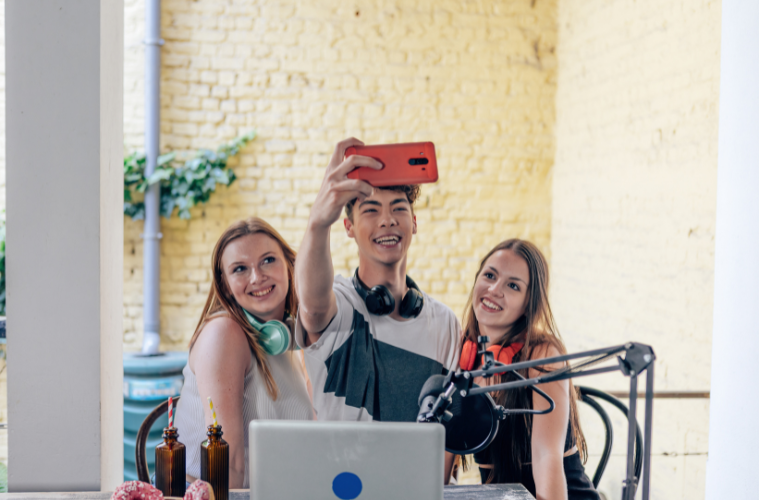Gen Z is reshaping how society understands and approaches mental health. Born between the mid-1990s and early 2010s, Gen Z is now entering adulthood with a unique set of challenges and experiences. They are the most digitally connected generation in history, but also among the most anxious, self-aware, and vocal about mental health concerns.
Here’s a look at the biggest mental health trends shaping the lives of Gen Z in 2025 and what it means for parents, employers, educators, and society as a whole.
1. Mental Health Is a Priority, Not a Taboo
Perhaps the most striking change is how openly Gen Z talks about mental health. For previous generations, discussing anxiety, depression, or therapy was often stigmatised. Gen Z has turned that on its head.
In 2025, mental health is seen as an essential part of overall wellbeing—just like physical health. This generation doesn’t hesitate to talk about burnout, boundaries, or therapy on social media, in classrooms, and at work. Many Gen Zers actively seek counselling or coaching, even when not in crisis, as a form of personal growth.
Why it matters: Open dialogue reduces stigma, encourages early intervention, and creates healthier communities.
2. Rising Anxiety and Digital Burnout

Despite being more open about mental health, Gen Z is also experiencing some of the highest rates of anxiety and depression. According to recent reports, a large portion of Gen Zers feel overwhelmed by global issues like climate change, economic instability, and geopolitical conflict, often described as “eco-anxiety” or “doomscrolling fatigue.”
Add to this the pressure of maintaining an online presence, comparing themselves to others on social media, and dealing with non-stop notifications, and it’s no surprise that digital burnout is a growing concern.
Emerging trend: Digital detoxing is gaining popularity. Apps and devices now include built-in tools to monitor screen time, block addictive features, and promote mindful usage.
3. Therapy Goes Digital—and On-Demand
In 2025, therapy doesn’t necessarily mean sitting in a room with a psychologist. Gen Z has embraced digital therapy platforms like BetterHelp, Talkspace, and newer AI-supported mental wellness apps. These platforms offer text-based support, video sessions, and self-guided programs—often at a lower cost and with greater flexibility.
AI-driven chatbots, while not a replacement for human therapists, now offer real-time emotional support and guided exercises for stress, anxiety, and sleep improvement.
Why it matters: Accessibility is no longer a major barrier. Students, remote workers, and rural communities can now receive mental health support from anywhere.
4. Schools and Workplaces Are Stepping Up
Educational institutions and employers are now more aware of the mental health challenges faced by Gen Z. Many schools include mental wellness programs in their curriculum, and universities offer virtual counselling services around the clock.
Workplaces, especially those that hire younger employees, are also adapting. Mental health days, flexible hours, and access to mindfulness tools are becoming standard, not perks. Companies that don’t support mental wellbeing risk losing young talent.
Emerging practices: Peer support groups, mental health first aid training, and app-based employee wellness platforms are increasingly common.
5. Identity, Inclusion, and Psychological Safety

For Gen Z, mental health is deeply tied to identity and inclusion. Many Gen Zers belong to diverse racial, gender, and neurodivergent communities. They expect safe, inclusive environments where they can be their authentic selves without fear of judgement or discrimination.
Microaggressions, exclusion, and lack of representation can take a serious toll on mental well-being. In response, more therapists and mental health educators are adopting culturally competent, trauma-informed approaches.
Key insight: Belonging and acceptance are not just social issues—they’re mental health issues too.
6. Holistic, Preventative Approaches
Gen Z is increasingly turning to holistic mental health practices like meditation, yoga, journaling, sound therapy, and nutrition to manage stress and maintain balance. Rather than waiting until they hit breaking point, many practice daily habits that support emotional resilience.
Apps like Headspace, Calm, and Stoic are popular not just for stress relief but for creating healthy routines.
Why it matters: This proactive mindset reduces the risk of burnout and long-term mental health issues.
Final Thoughts

Gen Z is leading a mental health revolution in 2025. They’re not just talking about mental health—they’re demanding better systems, tools, and support. Their values around transparency, self-care, and inclusivity are challenging institutions to do better.
While challenges like anxiety, digital overload, and global uncertainty remain real, Gen Z’s openness and innovation in addressing mental health offer a hopeful path forward for individuals and society.
The message is clear: mental health isn’t a side conversation anymore. For Gen Z, it’s central to how they live, work, connect, and thrive.



